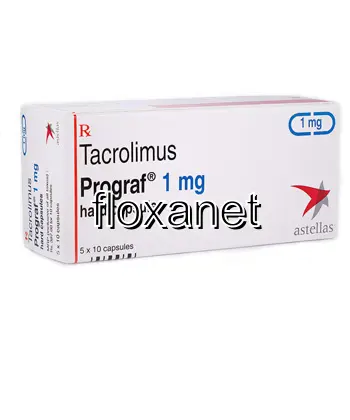| Package | Dosage | Price | Price per Dose | |
|---|---|---|---|---|
| Dosage: 0,5mg | ||||
| 90 pill | 0,5mg | CAD674.18 | CAD7.48 | |
| 60 pill | 0,5mg | CAD479.12 | CAD7.99 | |
| 30 pill | 0,5mg | CAD267.01 | CAD8.90 | |
| 20 pill | 0,5mg | CAD187.47 | CAD9.37 | |
| 10 pill | 0,5mg | CAD100.35 | CAD10.11 | |
| Dosage: 1mg | ||||
| 90 pill | 1mg | CAD946.89 | CAD10.53 | |
| 60 pill | 1mg | CAD677.97 | CAD11.31 | |
| 30 pill | 1mg | CAD399.58 | CAD13.29 | |
| 20 pill | 1mg | CAD297.31 | CAD14.85 | |
| 10 pill | 1mg | CAD166.64 | CAD16.74 | |
| Dosage: 5mg | ||||
| 20 pill | 5mg | CAD903.33 | CAD45.13 | |
| 10 pill | 5mg | CAD505.63 | CAD50.55 | |

Tacrolimus Description
Understanding Tacrolimus
Tacrolimus is a potent immunosuppressive medication widely used in the field of organ transplantation. It plays a crucial role in preventing rejection by suppressing the immune system's response. This medication is primarily prescribed to patients who have undergone kidney, liver, or heart transplants. Its effectiveness in reducing the risk of organ rejection has made it a staple in transplant medicine.
How Tacrolimus Works
The medication works by inhibiting the activity of calcineurin, an enzyme that activates T-cells. T-cells are a type of white blood cell involved in orchestrating the immune response. By blocking this activation, Tacrolimus effectively dampens the immune system's ability to attack the transplanted organ. This targeted action helps maintain the viability of the transplant and improves long-term outcomes.
Administration and Dosage
Doctors typically prescribe Tacrolimus in the form of capsules, but it can also be administered via injections in some cases. The dosage varies depending on individual patient factors such as body weight, type of transplant, and response to the medication. Close monitoring of blood levels is essential to ensure optimal dosing. Patients are usually advised to take the medication at the same time each day to maintain consistent blood concentrations.
Possible Side Effects
While Tacrolimus is highly effective, it can cause a range of side effects. Common issues include tremors, headaches, hypertension, and gastrointestinal disturbances like nausea or diarrhea. Some patients may experience elevated blood sugar levels or kidney function impairment. It is important for individuals on Tacrolimus to undergo regular blood tests to monitor for adverse effects and adjust the dose if necessary.
Precautions and Interactions
Patients taking Tacrolimus should inform their healthcare provider about any other medications they are using. It can interact with a variety of drugs including antifungals, antibiotics, and certain antihypertensives. Such interactions may affect the drug’s efficacy or increase side effects. It's also crucial to avoid grapefruit or grapefruit juice, which can raise Tacrolimus blood levels and potentially cause toxicity.
Storage and Handling
Proper storage of Tacrolimus is vital to maintain its effectiveness. The medication should be kept in a cool, dry place away from direct sunlight and out of reach of children. Never use medication that is past its expiration date or shows signs of contamination. Always follow the instructions provided by your healthcare provider or pharmacist for safe handling and storage.
Summary
Tacrolimus remains an essential drug in transplant medicine thanks to its ability to prevent organ rejection. Despite its benefits, careful management and regular medical supervision are necessary to minimize risks. Patients should adhere strictly to prescribed dosages and attend routine blood tests to monitor their health. With proper use, Tacrolimus can significantly improve the success rate of transplant procedures and enhance quality of life for recipients.
